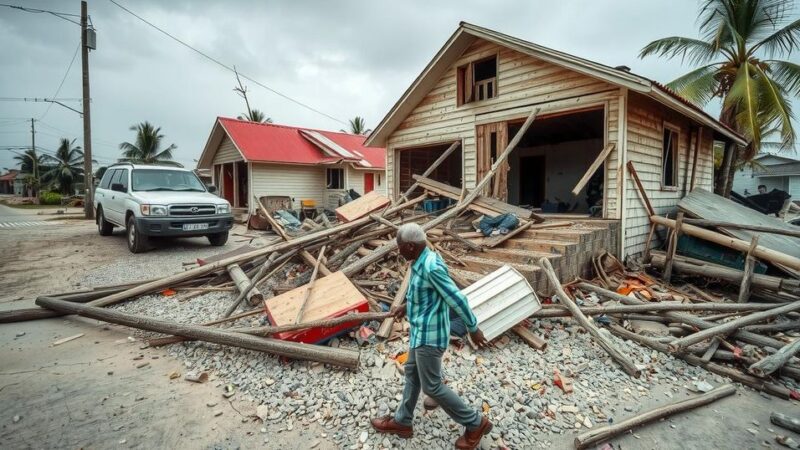Yemen is experiencing severe impacts from climate change amid ongoing conflict, with significant implications for food and water security, as highlighted by the World Bank Group’s CCDR. The report urges for urgent climate-responsive investments and emphasizes the need for peacebuilding efforts alongside international support to enhance resilience and sustainable development in the region.
The ongoing conflict in Yemen, now in its tenth year, is exacerbated by worsening climate change, leading to increased threats such as water scarcity and food insecurity. The World Bank Group’s Yemen Country Climate and Development Report (CCDR) emphasizes the urgent need for climate-responsive investments to confront these challenges while navigating the nation’s fragile state. As climate-related hazards intensify, they not only threaten the livelihoods of Yemen’s population but also pose a significant risk to the economy, with projections indicating a potential annual GDP decline of 3.9% by 2040 due to diminished agricultural yields and infrastructure deterioration.
Climate impacts in Yemen, including extreme heat, drought, and flooding, affect half of the population. Nevertheless, the CCDR presents opportunities for resilience through strategic investments in sectors like water management, adaptive agriculture, and disaster risk mitigation. Such investments could lead to a remarkable increase in crop productivity by 13.5% from 2041 to 2050 in favorable climate scenarios. The fisheries sector, however, remains susceptible to significant losses of up to 23% due to rising sea temperatures.
In light of the intersecting crises of conflict, climate change, and poverty, urgent actions are required to promote climate resilience for the millions of Yemenis at risk. According to Stephane Guimbert, World Bank Country Director, “Immediate and decisive action on climate resilience is a matter of survival for millions of Yemenis. By investing in water security, climate-smart agriculture, and renewable energy, Yemen can safeguard human capital, build resilience, and lay the foundations for a path to sustainable recovery.”
A collaborative approach involving peacebuilding efforts and international support is essential for Yemen’s future. While humanitarian aid provokes immediate relief, establishing sustainable peace is crucial for attracting the funding necessary to fortify long-term climate resilience. The report stresses the importance of integrated disaster risk management, especially as urban areas and essential infrastructure are increasingly vulnerable to climate-related disruptions.
Moreover, with a significant potential for renewable energy development, Yemen can leverage these resources to reduce reliance on fossil fuels and enhance its energy infrastructure. This is particularly vital for enabling essential services such as healthcare and water supply in regions affected by conflict. Khawaja Aftab Ahmed of the International Finance Corporation underscores the private sector’s integral role in this transformation, stating, “Harnessing its potential through innovative financing mechanisms…can help mobilize the climate-focused funding the country urgently needs to build a greener and more resilient future.”
The CCDR advocates for flexible decision-making that can adapt to Yemen’s unpredictable political climate by employing a scenario-based approach to climate investments. This method could yield more significant economic and social benefits dependent on the country’s progress towards peace or further descent into conflict.
Yemen is currently grappling with the simultaneous crises of ongoing conflict, economic instability, and the escalating impacts of climate change. The consequences of these overlapping challenges are particularly severe for Yemen’s vulnerable population, with many facing critical levels of food insecurity and inadequate water supplies. The World Bank Group’s CCDR offers a comprehensive analysis of the situation, outlining the necessary steps for climate adaptation and resilience building tailored to Yemen’s unique context.
In conclusion, Yemen stands at a pivotal juncture, facing dire challenges that necessitate immediate and coordinated climate actions alongside peacebuilding initiatives. The insights from the CCDR reveal abundant opportunities for enhancing resilience and securing economic stability through targeted investments in critical sectors. It is imperative for both national and international stakeholders to prioritize sustainable interventions that will not only address immediate needs but also pave the way for a more secure and prosperous future for Yemen.
Original Source: www.worldbank.org







